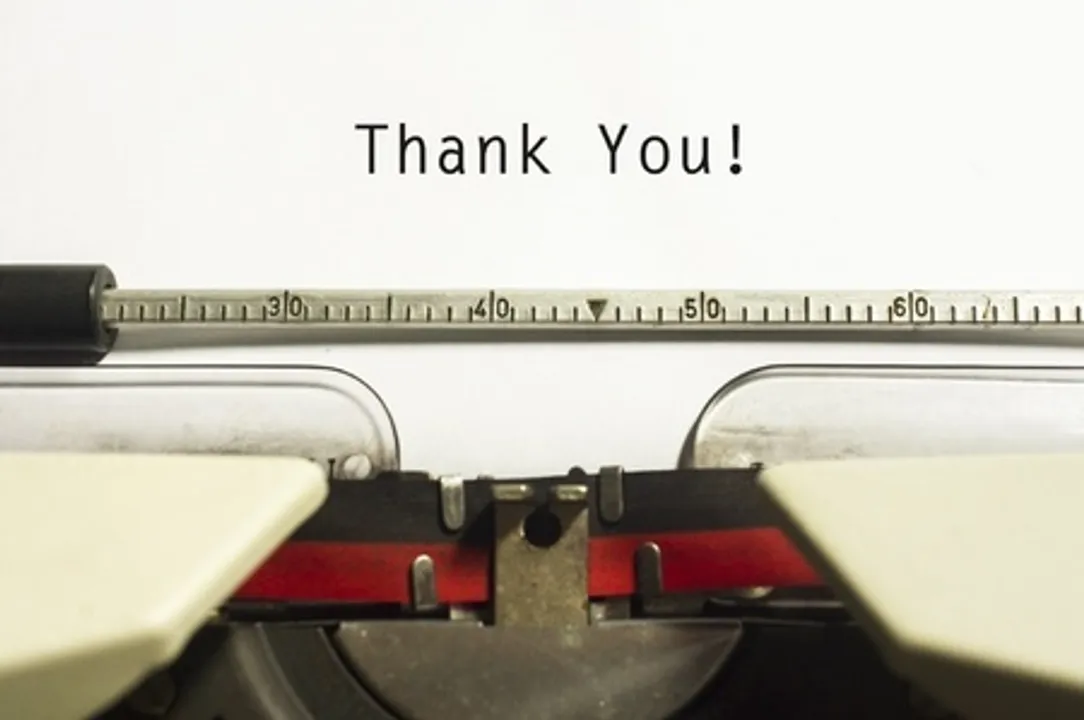Thank You Notes: The Forgotten Job Search Tool

mtkang/123RF.com
The Forgotten Job Search Tool
People often ask me if candidates should still send thank you notes after interviews. Other people wonder if the advice to send a thank you note applies to healthcare job seekers. I always answer yes to both inquiries. In my experience, sending a thank you note benefits all job seekers.
Why to Send One
A thank you note differentiates you from your competitors. Managers frequently hear candidates say versions of “I have great follow up,” and “I’m really interested in working here.” Sending a thank you note shows people that you follow up and are interested in the position.
A thank you note also helps people remember you. Supervisors are trying to perform their job responsibilities while screening potential new hires, and a recruiter might have a portfolio of 30 or more open positions to fill. Hectic schedules mean key people in the hiring process sometimes forget about candidates.
What to Say
An effective thank you note is very succinct. People do not have time to read lengthy letters. A good thank you letter is structured this way:
- Start with a paragraph that thanks the person for his her time, states what interests you about the position, and mentions that you can quickly contribute to the medical facility.
- List three reasons why you fit the opening. You can use bullet points or write this section in paragraph form.
- Conclude with a paragraph that expresses interest in the position and states that you look forward to hearing their decision soon.
Who Gets a Thank You Note
In addition to the hiring manager, try to send a thank you note to everyone you meet face-to-face in the final interview. It is not uncommon for a hiring manager to ask other people involved in the process for their opinions. You want to make sure you leave a positive impression with these influencers.
Tip: If you met with someone (say a future co-worker) and you do not have the correct spelling of his or her name, do not send a thank you card. Instead, include a postscript in your thank you letter to the hiring manager and ask him or her to share your letter with everyone you met.
If someone referred you for the opening, send him or her a thank you note, too. One study found that networking is a factor in 80% of job offers (http://www.recruitingblogs.com/profiles/blogs/80-of-today-s-jobs-are-landed-through-networking). It is important to acknowledge anyone who helps you with your job search.
How and When to Send It
Job seekers ask me if it is best to email or mail a thank you note. From my experience, hiring managers appreciated either one. Make sure you only send a handwritten note if you have good handwriting.
To determine when it is best to send a thank you note, you need to gather some information during the interview. Feel free to ask the main interviewer what the timeframe is for making a decision. If the decision will be made soon (within no more than 3 days), send a thank you note within 24 hours to the email address listed on the interviewer’s business card. For a longer timeframe, I recommend sending the thank you note two to three days after the interview. You remind people of your interest.
Professionalism is Never Old-Fashioned
Keep this anecdote in mind. When I was a recruiter, I witnessed hiring managers use thank you notes as a “tiebreaker” if it came down to two equally qualified candidates. Those who sent thank you notes got job offers because they proved their follow up was sound, and their interest level was high.
Sending a thank you note is not guaranteed to get you an offer. However, interviewers always had a positive impression of note senders. A well-written thank you note is one tool that really helps with your job search.
Related Posts
